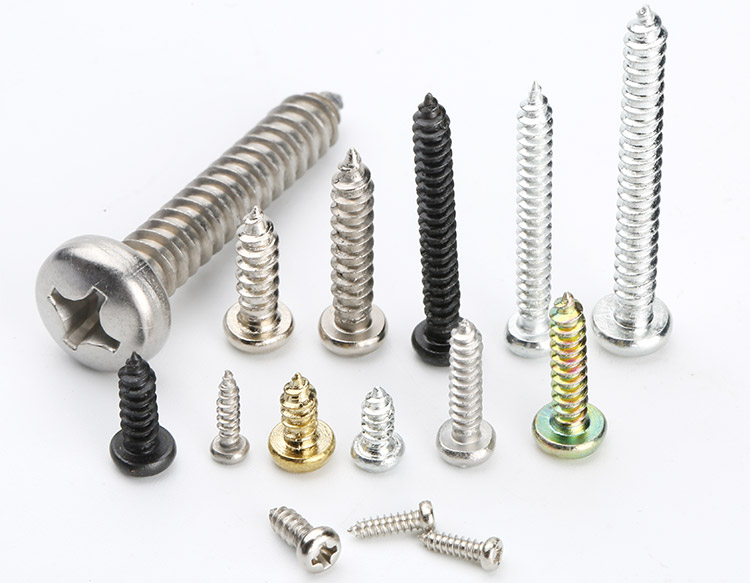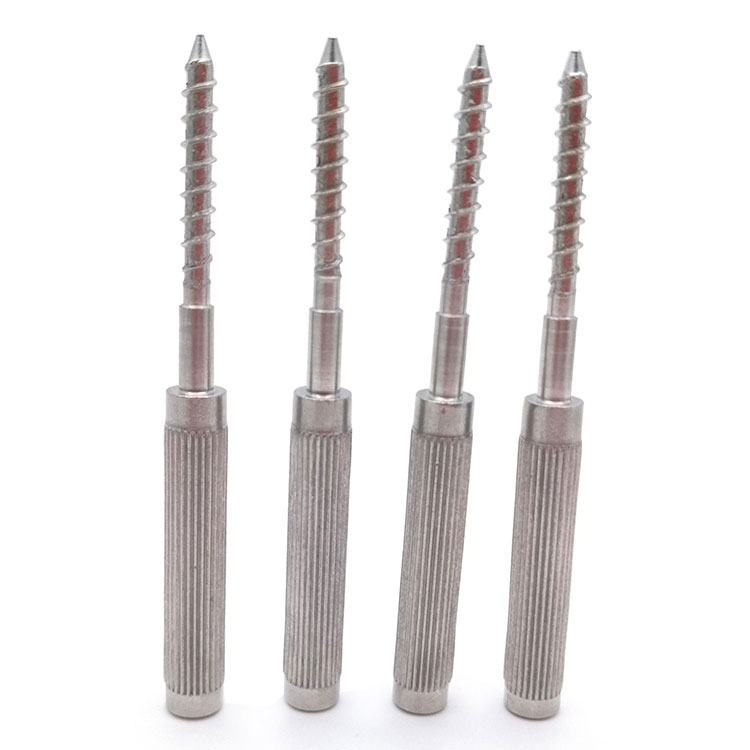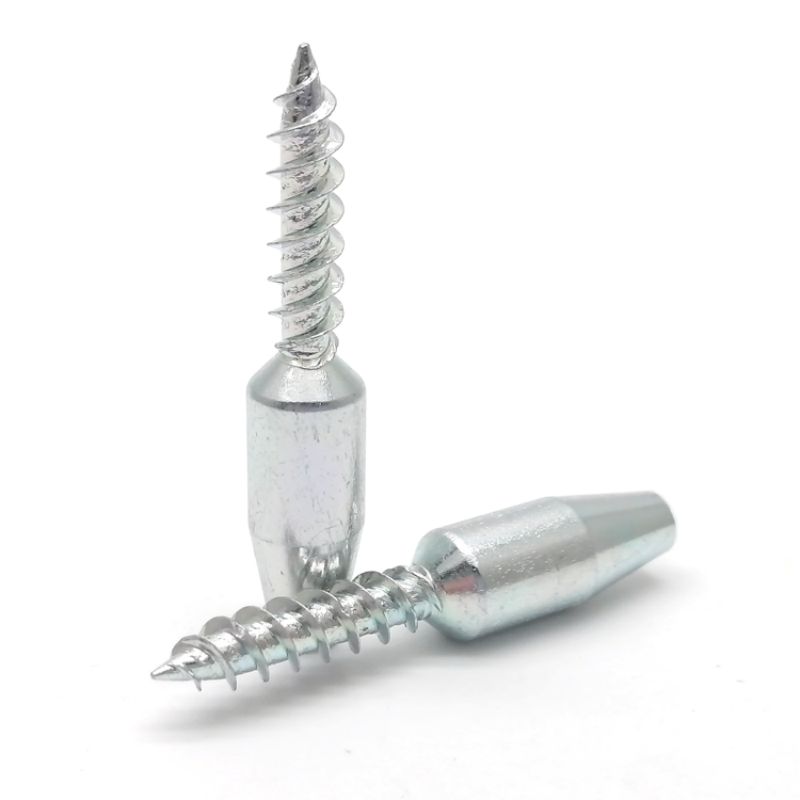
Tel:
+86 13143444311
Email:sst@szsst88.com
Fax:+0086-755-27322278
Address:Building 9, First Industrial Zone, Tantou Industrial City, Songgang Street, Baoan District, Shenzhen 518105, Guangdong, China
In harsh environments with high humidity or corrosion, do your screws often rust quickly? This can lead to fastener failure as well as damage to your critical equipment. Stainless steel self-tapping screws solve these problems, providing exceptional corrosion resistance, and lasting use. For the best selection of self-tapping screws, Shi Shi Tong is the vendor to count on.
Stainless Steel Self-Tapping Screws for Reliable Performance
Stainless steel self-tapping screws are widely used in various engineering applications due to their excellent corrosion resistance and ease of installation without the need for pre-drilling. Whether in high-humidity areas or outdoor projects, stainless steel self-tapping screws, including popular options like pan head stainless steel self-tapping screws, offer a dependable fastening solution.
But why are stainless steel self-tapping screws so popular? Let’s dive deeper into their benefits and learn how they can improve your project’s performance.

Can you use self-tapping screws in stainless steel?
Are you considering using self-tapping screws directly on stainless steel materials? Traditional screws have a hard time trying to bite into hard stainless steel, slipping out and failing to be able to secure it. However, yes, you can use self-tapping screws in stainless steel, especially if you are talking about thin sheets.
For thicker stainless steel, it doesn’t hurt to pre-drill a pilot hole because if you mess up a stainless steel screw or a piece of stainless steel, the prices are going to be pretty high. Think of self-tapping screws as an efficient tool for thin layers and areas where the only way to install a screw is to drill in with the screw itself. This mechanic is why self-tapping screws are handy, break fewer drill bits, and are easy to install. If your situation requires two different materials, say aluminum and stainless steel, then you want a screw that is stainless steel so it does not corrode. The screw also acts as a break between the two dissimilar metals. This breaks galvanic corrosion, where the two dissimilar metals bond and start to corrode.
Stainless steel self-tapping screws can be used on thin stainless steel layers but may require pre-drilling for thicker materials to ensure proper fastening and prevent screw slippage. They are also suitable for self-tapping stainless steel screws for aluminum, offering both strength and corrosion resistance.
What are the disadvantages of self-tapping screws?
Are you worried about how well self-tapping screws will work in certain situations? Self-tapping screws are wonderful, but there are some definite challenges using them in very hard or thick materials. They might not cut the threads you need in hard metals or the threads might stripe out, especially under high loads, if you’re not careful during installation.
One negative with self-tapping screws is they don’t work as well in that very hard or that very thick metal (where the screw won’t bite or strips out the threads) . . . (Not to mention, self-tapping screws aren’t great for taking in and out over and over again because, as you put the threads into it and pull them out, you weaken the hole.)
The main disadvantages of self-tapping screws include their limited effectiveness in thick or hard materials and their tendency to lose gripping power after repeated use, making them unsuitable for high-stress or reuse situations.

How thick of steel can self-tapping screws go through?
Are you thinking, “I wonder how thick steel your self-tapping screw can hold?” The answer is the steel might be too thick for the screw to go through or tie into properly. For the typical stainless steel self-tapping screw, you can go through steel sheets ranging from 1mm to 5mm thick.
For steel thicker than that, you’re better off drilling a hole to make sure the screw goes in all the way and doesn’t get hurt. If you don’t do that, the screw might break or fail to make itself a home where it’s supposed to be.
Stainless steel self-tapping screws work best in steel with thicknesses of 1-5mm. For thicker steel, pre-drilling is recommended to maintain strong fastening and prevent screw failure. Specific types like pan head stainless steel self-tapping screws are excellent for general applications, providing a secure, flush finish on thin metal sheets.
Are there self-tapping screws for metal?
Do you need a screw that’s specifically designed for metal? Because your standard, everyday screw probably won’t work. But, don’t worry, a stainless steel self-tapping screw has you covered because they’re made to go into all kinds of metals.
Yep, you can get self-tapping screws specifically designed for metal, including stainless steel self-tapping screws. These screws have threads that are made to cut into metal and not require a hole to be pre-drilled. They are fantastic tools and used all over the place in construction, car manufacturers, computer people, etc.
Stainless steel self-tapping screws are designed for use in metal, offering excellent penetration and fastening strength without the need for pre-drilling, making them ideal for metal construction and fabrication. They can also be used as self-tapping stainless steel screws for aluminum, which require precise installation to prevent corrosion between dissimilar metals.

What are the disadvantages of stainless steel screws?
While people know stainless steel screws to be the cat’s pajamas when it comes to not rusting, do they have any disadvantages? The one problem with stainless steel screws is, because they’re not the type of steel that can be heat treated and hardened, they don’t have as high of tensile strength as, say, a screw made of heat-treated steel or other stronger alloys.
Also, when you screw them into something, stainless steel can gall, which means it forms a wear that happens when two metals of the same type rub together under pressure. Finally, you have electrolytic corrosion, which is when a stainless steel screw is in contact with a piece of steel like aluminum and gets stuck in the presence of moisture.
Stainless steel screws may have lower tensile strength compared to hardened steel screws and can suffer from galling or electrolytic corrosion when used with incompatible metals like aluminum. In cases involving self-tapping stainless steel screws for aluminum, ensure proper separation to avoid corrosion.
When not to use stainless steel screws?
Are there any places where you shouldn’t use stainless steel screws? As a general rule, stainless steel screws are great, but not in high-stress or high-temperature applications. If you’re working in heavy equipment or in a situation where there’s one locked in a hellacious load all the time, then you might want to use the black screws because they’re stronger. If you’re in a high-heat or corrosive environment where the weakest link is the screw, then you’re probably working in a stainless steel plant already and aren’t reading this book.
Also, don’t use stainless steel screws on aluminum if at all possible. The wear you create tends to lead to rust down the road. A lot of times in the real world, you don’t have a choice and you have to put screws into aluminum, steel, and plastic. In these situations, you might want to look at using some of the different sprays or coatings to see if they’ll help prevent the problems before they start.
Stainless steel screws should not be used in high-temperature, high-stress environments, or when directly contacting incompatible metals like aluminum, as these situations could lead to performance issues or corrosion.

Conclusion
People use stainless steel self-tapping screws. They also love the pan head stainless steel self-tapping screws. If you know what you’re doing, they’re great screws for a lot of applications out there in the world. Keep in mind, if you screw these into aluminum, you’re going to spend more time drilling or cutting out the screws (or piece of aluminum) when it’s raised a bump that’s not where it was supposed to be any longer. Also, think about where you’re going to use these when you’re working with aluminum, because, yes, that’s where you need the stainless steel fastener, but aluminum and stainless have a tendency to weld together and never come apart. And you can tell which metal was the weaker of the two when you go to unscrew the thing.
 |
Skype: kalyn qin M: +86 18818786322 Tel: +86 0755-27322278 Add: Building 9, Tantou First Industrial Zone, Songgang Street, Baoan, Shenzhen 518105, Guangdong Province, China |
10 月-15-2024
kalyn

 +86 13143444311
+86 13143444311 sst@szsst88.com
sst@szsst88.com